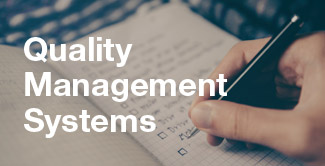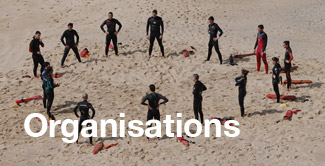
Quality Management Systems
Quality Management Systems
Over the years when working with organisations wanting assistance in gaining ISO 9001 certification I have found that the Plan, Do, Check, Act (PDCA) model is not well understood or used. ISO 9001:2015 now has the PDCA model linked to the clauses of ISO 9001 which should make it easier to understand when an organisation is planning its approach in the development and implementation of its quality management system. Read More
Two Common Questions about the Development & Implementation of a Quality Management System
Q. Does it take very long to implement a quality management system? A. It depends on the following... Read More
Quality Management Systems – FAQ
The following are the most Frequently Asked Questions I come across on a daily basis. Does it take very long to implement a quality management system? It depends on the following... Read More
Case Study Q&A: Global Distribution Company
I recently worked with a global distribution company to prepare them for compliance with ISO requirements. This Q&A gives insight into typical challenges and solutions. Read More
Audits
How to plan & run a smooth audit
Time is of the essence and when asked to conduct an audit by management, stress levels usually peak – Where do I start? How much time have I got to do this? What do they want me to audit? Where do I need to go to do the audit? How do I decide whom to interview? AND I have to plan all of this! Read More
Carrying out an audit
A good auditor spends time planning and preparing for their audit but it is also critical to consider your personal style when approaching an auditee. As we all know human beings do not behave in the same way so an auditor needs to adapt their approach to be able to engage with the auditee and get appropriate and timely information resulting in an audit report that adds value to their organisation. Read More
Carrying out an audit Part 1: Have you considered these things?
A good auditor spends time planning and preparing for their audit (see article How to plan and run a smooth audit) but it is also critical to consider your personal style when approaching an auditee. As we all know, human beings do not all behave in the same way, so an auditor needs to adapt their approach to be able to engage with the auditee and get appropriate and timely information, resulting in an audit report that adds value to their organisation. Read More
Carrying out an audit Part 2: Communication & people skills
Having the appropriate interpersonal skills is essential for the audit to be successful. All auditors have their own preferred style; know what your style is and check before each audit if it is appropriate for that particular auditee. Read More
Carrying out an audit Part 3: Handling conflict situations
An audit doesn’t always go according to plan, and sometime during our auditing career we will come across auditees who are reluctant to participate in an audit. They may be nervous, but very rarely will you find someone who is rude about the whole process. If this does happen, it is your job as an auditor to manage conflict situations and to reinforce that you are there to audit the process, not the individual. Read More
Constructing an audit report
In this article we discuss how to construct an audit report. Most organisations already have templates in place to assist the auditor to write their report, with clear headings to guide the author and the reader. Read More
Training
What training does your organisation need to ensure optimum systems & processes?
1. Risk Management - The importance and processes of risk management is an important area for staff to be on top of. 2. Understanding ISO9001 and Business Processes - Understanding the importance of a Quality Management System and giving tools to support staff in the process approach may be vital to your organisation. Read More
Planning, Preparing & Conducting Training Workshops
I have been running public and in-house workshops for many years and on all types of topics. One thing you can be sure of as a trainer / facilitator is you can plan and prepare, but you never know who is going to walk through the door, and whether they are committed to learning, or if they are a ‘training hostage’. Read More
Planning, Preparing and Conducting Training Workshops (Part 1)
Part 1: Planning & Preparation. I have been running public and in-house workshops for many years on all types of topics and one thing you can be sure of as a facilitator is that you can plan and prepare, but you never know who is going to walk through the door and whether they are committed to learning or are they what is called a ‘training hostage’! Read More
Planning, Preparing and Conducting Training Workshops (Part 2)
Part 2: Presenting. Things to consider when presenting... Read More
Planning, Preparing and Conducting Training Workshops (Part 3)
Potential Problems and Tips. Have you ever experienced these common problems when running a training course? Read More
Mentoring
An overview of mentoring & how it works in an organisation
Mentoring has long been accepted as a valuable tool to develop team members within organisations. Here are some basics to get you started thinking about how mentoring can benefit you and your organisation. Read More
Setting up a Mentoring Program
In this article, I want to outline a few points to consider when setting up a mentoring program within your organisation. Read More
Team Building
Using the G.R.O.W Model to solve problems in business
One time-tested tool I use frequently when consulting with businesses and teams is the G.R.O.W. model. This follows the simple format of asking questions under each of the categories Goal, Reality, Options and What’s Next. To illustrate how this works, I’ll take you through my thoughts as a consultant, before and during any session using G.R.O.W. Read More
Communicating in the workplace: Which method is best?
Look at any organisation’s documentation, including position / job descriptions, and you will see “good communication skills” listed. What does this mean and has the organisation clearly articulated what that means for them? If they haven’t, individuals will use their own initiative to communicate, which in this day and age usually means emails. Read More
Team performance without meaningful communication?
A well-performing team just doesn’t just happen. It takes time and effort and one of the hardest things to get right is the communication between management, team members and respective teams. A lack of communication can create uncertainty that leads to stress and conflict, ending in lost productivity, failure to reach goals, unhappy staff and the loss of good performing staff. Read More
Team building – why it matters
When it comes to a thriving business, engaging in team-building activity is an integral piece of the puzzle. If not fully understood or the time is not taken by management to build an effective team, the result could be confusion, ineffectiveness, conflict and even resentment and losing key staff. Read More
Achieving healthy teams
Hmm, what is a healthy team? Is it behaviour, ethics, professionalism, the way we treat others, energy, dynamism, trust, enthusiasm? It can mean all of these things, but the challenge lies in how an organisation achieves these ‘healthy teams’. Read More
Organisations
Understanding and Engaging with Stakeholders
Stakeholder analysis is fundamental for any organisation to understand what their key stakeholders expect from them. While some organisations may have a very structured approach, for others it can be based on ‘assumptions’. Ultimately an organisation needs to understand who their stakeholders are, internally and externally, so they can respond and report any concerns affecting their performance. Read More
Stakeholder Engagement: Planning versus results
This article will review some of the common problems and causes in effective stakeholder relationship management, with some tips on how to better prepare for stakeholder identification and engagement and get the results an organisation had planned. Read More









